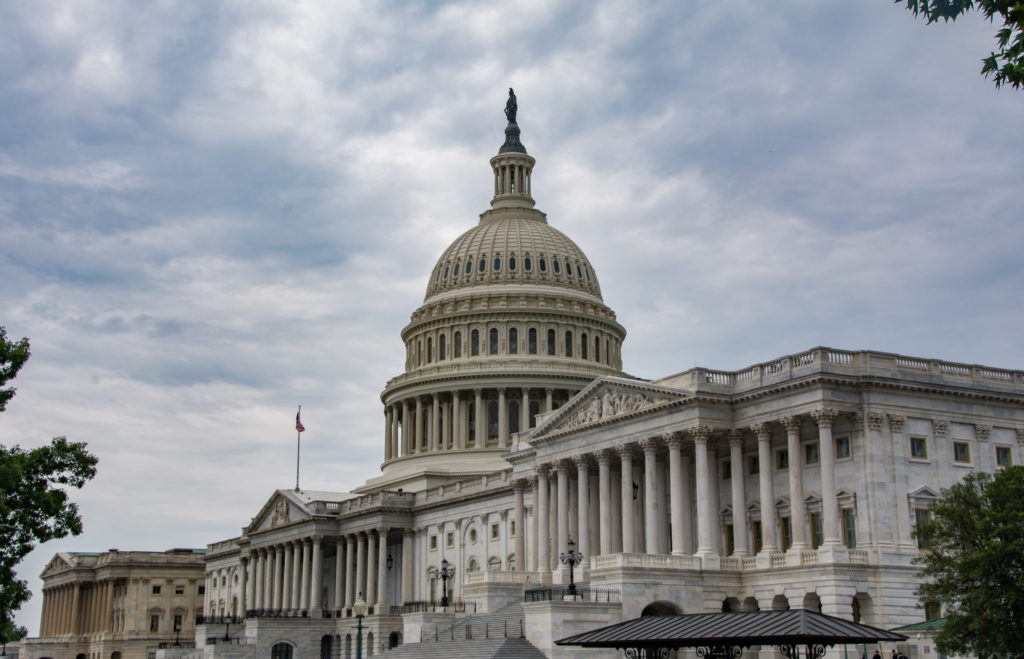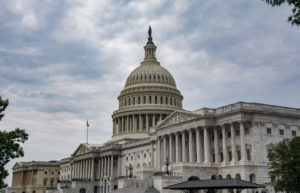
WASHINGTON (BP)—The recently confirmed United States ambassador-at-large for international religious freedom has received congratulations and a promise of prayer from the acting head of a Southern Baptist Convention entity.
The U.S. Senate voted 85-5 in a Dec. 16 confirmation vote for Rashad Hussain, who had been nominated in late July by President Biden. Hussain became the first Muslim to hold the position since it was created in 1998 as part of the International Religious Freedom Act.
In congratulating Hussain, Brent Leatherwood, acting president of the Ethics & Religious Liberty Commission (ERLC), said, “We are praying for his success and we are eager to work with him. Religious freedom is under assault around the globe and his position is vital to confronting those who would undermine this fundamental right.”
Hussain, who served this year as director for partnerships and global engagement at the White House National Security Council, served during the Obama administration as special envoy to the Organization of Islamic Cooperation (OIC) and special envoy for strategic counterterrorism communications. The OIC is an intergovernmental organization of 57 largely Muslim countries.
The ambassador-at-large serves as the primary adviser to the secretary of State regarding global religious liberty and also advises the president. He supervises the State Department’s office of international religious freedom. Hussain’s confirmation makes him the sixth person to fill the post since it was established 23 years ago. Sam Brownback, the previous ambassador-at-large, served during the last three years of the Trump administration.
The chair of the bipartisan U.S. Commission on International Religious Freedom (USCIRF) commended Hussain’s confirmation. “With his years of knowledge and experience, Ambassador Hussain is well placed to advance the U.S. government’s promotion of international religious freedom,” Nadine Maenza said.
Religious Freedom Institute (RFI) President Tom Farr – a leading, veteran advocate for global religious liberty – said, “This is a critically important position in American foreign policy, and Rashad Hussain is eminently qualified to fill it.” Hussain “admirably meets [the] qualifications in every respect” that RFI told the Biden administration early this year were needed for an effective ambassador-at-large.
China, the world’s most populous country, remains one of the focal points for the United States in its efforts to defend religious freedom around the world.
The Senate confirmed Hussain the same day it passed without opposition a bill to ban the importation of goods made by forced labor in western China amid a genocidal campaign primarily against Uyghur Muslims in the region. The House of Representatives had approved the legislation Dec. 14. The proposal now awaits Biden’s signature, which has been promised by the White House.
The campaign by the Chinese Communist Party (CCP) against the Uyghurs has included not only forced labor but detention in “re-education” camps and a coercive population control program of abortion and sterilization.
Messengers to the SBC’s annual meeting in June approved a resolution that condemned the CCP’s treatment of the Uyghurs and called for the U.S. government to take “concrete actions” to end the genocide. With its passage of the resolution, the SBC reportedly became the first Christian denomination to denounce China’s campaign against the Uyghurs as genocide.
USCIRF, which is made up of nine commissioners selected by the president and congressional leaders, tracks the status of religious liberty worldwide and issues reports to Congress, the president and the State Department.
The five votes against Hussain’s confirmation came from Republican senators.















